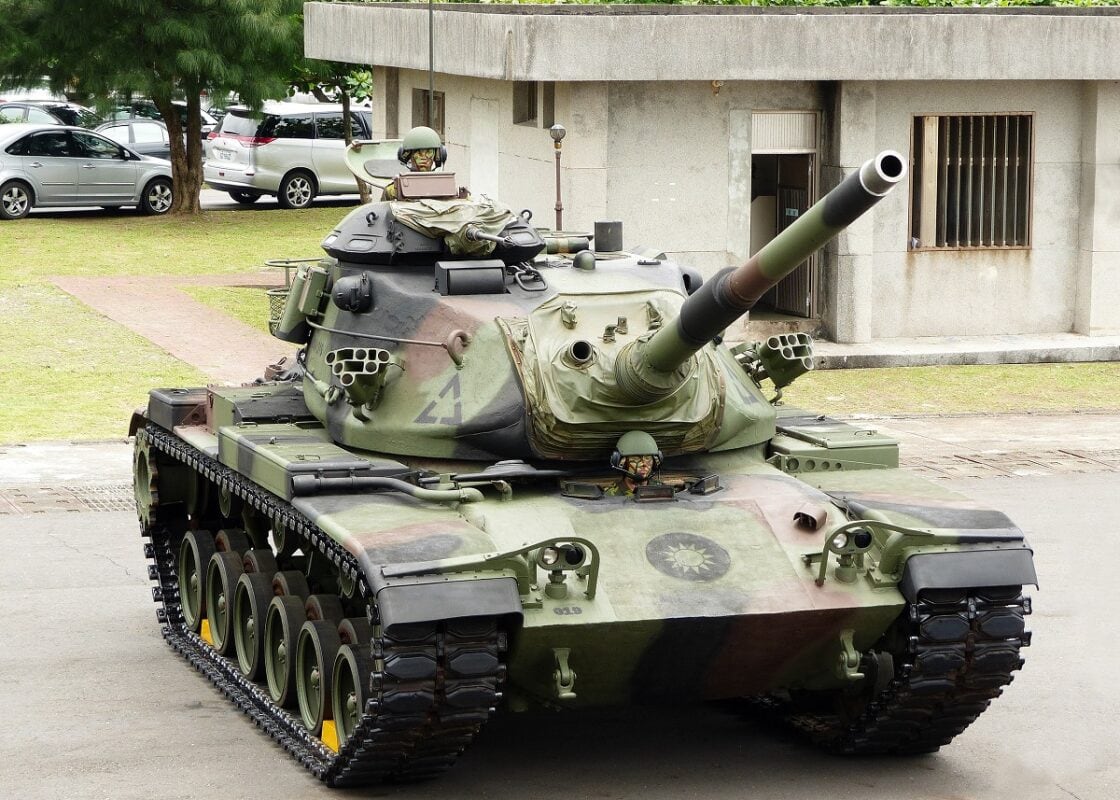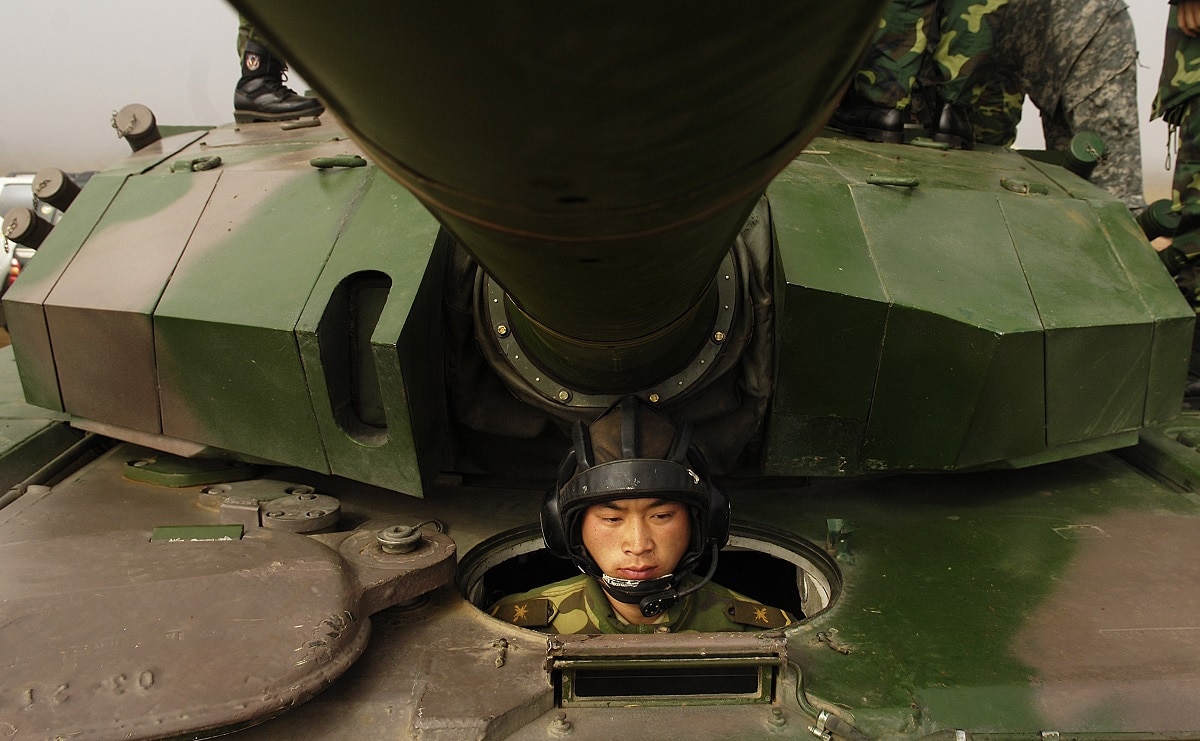Chinese supremo Xi Jinping has made taking Taiwan the centerpiece of his rule. He calls that “reunification.”
Taiwan, which governs itself as the “Republic of China,” labels a takeover “aggression” because Xi’s People’s Republic of China has never exercised sovereignty over the island.
Xi has been clear that, one way or another, he will get Taiwan, mentioning it prominently in his July 1 speech marking the centennial of the founding of China’s ruling party. “Resolving the Taiwan question and realizing China’s complete reunification is a historic mission and an unshakable commitment of the Communist Party of China,” he proclaimed.
In that address, he promised to “crack skulls” and “spill blood” of those standing in his way. So will Xi invade the island republic?
There are three reasons why he will not. First, Xi realizes that the mighty Communist Party of China might not survive an invasion, even a successful one.
The primary goal of the foreign policy of the People’s Republic is not taking Taiwan or any other bit of “lost” territory. The primary goal is the maintenance of Party rule, and the mighty Party might not survive an invasion.
The costs in blood of such a move would be high. Richard Fisher of the Northern Virginia-based International Assessment and Strategy Center told 1945 that China could lose about 50,000 troops, sailors, and pilots even if it were able to both achieve complete surprise in mobilizing thousands of barges, ships, and planes and prevent others from coming to Taiwan’s rescue.
“Should China fail to gain complete surprise and the United States and Japan successfully mount a counterattack that included sea-air combat and combat on Taiwan, China could lose 100,000 troops,” Fisher said.
Xi, I suspect, believes such losses, even at the lower end of Fisher’s range, could imperil the Party. In general, China’s people, due to incessant propaganda, are undoubtedly in favor of absorbing the island at some point, but many of them probably do not attach great priority to that mission, especially as China is now afflicted by, among other things, the horrible flooding in the center of the country and the rampant Covid epidemic everywhere. There has been for years voices arguing that Beijing should devote its resources at home before acting abroad.
There is also the view that “Chinese should not kill other Chinese.” Taiwan’s people for the most part do not self-identify as “Chinese”—a survey released last month showed a record-low 2.7% think of themselves as “Chinese” only—but residents of the People’s Republic see themselves and people on the island as of the same blood.
Moreover, there is a view in China that, although Taiwan should eventually “rejoin” the “Motherland,” people in the Motherland understand why the Taiwanese do not at this time want to become part of their horrible system.
Finally, it is unlikely that parents are keen on sending their only child into battle and perhaps, in the case of sons, ending forever their family name.
Killing Taiwanese is not bound to be popular, and suffering horrendous casualties would be less popular still.
Second, Xi Jinping cannot afford to give up his position as the most powerful person in China.
To assemble an invasion force—not to mention actually launching an invasion—would require giving some general or admiral complete control of all or most of the People’s Liberation Army. That is unlikely in a political organization that fears what Mao called “the gun.”
During the history of the People’s Republic, the Party’s civilians have been in constant struggle with the flag officers, even though the Chinese military reports to the Party. Marshal Lin Biao, once designated as Mao’s successor, almost certainly attempted a coup against Mao Zedong in 1971, which led to Lin’s mysterious death and an almost-complete purge of the high command.
The trauma of that event is still felt in elite Chinese circles. It is, therefore, unlikely that any civilian Communist Party leader—and especially Xi—would ever give a general or admiral the means to take over China itself.
Third, it is not entirely clear that, even if Xi gave the order to invade, flag officers would obey. In recent months there have been rumors of discontent in senior military circles, with reports that there is a li—a mile—between China’s supremo and his highest-ranking officers. There also is, rumors say, grumbling over the disruptions caused by Xi’s top-to-bottom reorganization of the military and his persecution of so-called “corrupt” officers, in reality, political purges of officers associated with Xi’s predecessors.
These rumors parallel those suggesting discontent with Xi in the foreign ministry and are consistent with recent hints that Xi has been stymied by other senior leaders.
Yet there is one powerful reason why Xi would give the order to invade Taiwan.
He has staked his rule on taking the island, mentioning this repeatedly. As he said in October 2013, “Looking further ahead, the issue of political disagreements that exist between the two sides must reach a final resolution, step by step, and these issues cannot be passed on from generation to generation.” Every anniversary that passes puts pressure on Xi Jinping to make good on his promise to take control of all “Chinese” territory.
Xi must now be concerned. In the past, all top-level decisions in Beijing were made by consensus, so nobody got too much credit or too much blame. Xi took power from others, however, so he now has almost full accountability.
To make matters worse for China’s ruler, losing a political struggle in senior Communist Party circles once meant retirement to a nice house. Xi, however, raised the cost of losing, which means his opponents now get jail cells.
Xi, in the domestic political landscape he has shaped, knows he’s vulnerable, especially because his policies are viewed as failing. That means he has a low threshold of risk, and that makes him dangerous.
Mao Zedong started the Cultural Revolution in 1966 to vanquish political enemies by rallying the Chinese people behind him. He concentrated on changing China because he didn’t have the means to go after other nations. Xi Jinping, also vulnerable domestically, does have the means to attack foreigners to bolster support at home.
And that brings us to China building—in Gansu, Xinjiang, and Inner Mongolia—perhaps as many as 340 missile silos for its DF-41 missile. The DF-41s are the perfect weapons to intimidate a Japan or a United States into not helping Taiwan resist a Chinese invasion.
China’s ruler is preparing for war.

ROC M60 tank. Image: Creative Commons.
Gordon G. Chang is the author of The Coming Collapse of China and The Great U.S.-China Tech War. Follow him on Twitter @GordonGChang. Chang is also a Contributing Editor to 1945.

